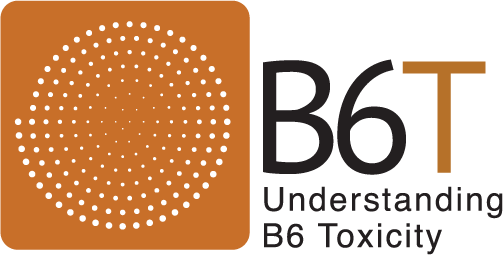Vasodilators expand blood vessels. Those with vitamin B6 toxicity have Small Fiber Polyneuropathy. One symptom of autonomic neuropathy that affects us is low blood volume. Low blood volume means that you have less blood circulating in your veins. If you add in a vasodilator, then you have WIDER vessels to carry less blood volume. The results are more autonomic systems including lightheadedness, brain fog, irregular pulse, headaches, fainting and anxiety to name a few. The Facebook group has also reported more sensory symptoms when a vasodilator is added to already low blood volume. These are the pins/needles, zaps and pain in various parts of the body.
We cannot avoid all vasodilators. An example is magnesium. Magnesium is a very strong vasodilator, but it is also an essential nutrient. We suggest that you get magnesium from food.
This is only a partial list. We will add more as we find them. There are some medically necessary drugs on the list. Consult with your doctor on these drugs.
We’ve seen over and over again members who are healing who have added in an unknown vasodilator only to get symptoms back. This is a post by one member on December 17, 2021. He stated, “Intense anxiety for the first time in a while. Tried some CBD and melatonin gummies for sleep. I guess that is what did it. Re-learning the no supplements lesson”. What this member didn’t know is that both CBD and melatonin are vasodilators. He understands the importance of limiting them now.
List of Known Vasodilators
1. Food: hot peppers, stevia, cocoa, garlic.
2. Drinks: most teas including green, black, and Tulsi tea, most alcohol including beer and wine, hot cocoa.
3. Activities: hot baths, LONG hot showers, exercise (we exercise when hydrated), Epsom salt baths (which have magnesium), massage.
4. Vitamins/Minerals: niacin, magnesium, potassium (this is why we spread out the coconut water throughout the day).
5. Supplements/Herbs: Coenzyme Q10 (CoQ10), curcumin, lemon balm, nattokinase, L-arginine, l-glutamine, Catuaba, cayenne pepper, ginger root, Ginkgo Biloba, Gotu kola, jiaoqulan, lotus, parsley, Schisandra, American hellebore, skullcap, barberry, black cohosh, black haw, coleus, fenugreek, ginseng, goldenthread, hawthorn, horseradish, ho-shou-wu, linden flower, nettle, olive leaf, paprika, prickly ash, Siberian, valerian, vervain, common yarrow, camphor, eucalyptus, melatonin, alpha lipoic acid (ALA).
7. Hormones: estrogen, progesterone (this is why symptoms are worse before and a day or two into the period).
8. Class of drugs known to be vasodilators: alpha-adrenoceptor antagonist (alpha-blockers), angiotensin-converting enzyme (ACE) inhibitors, angiotensin receptor blockers (ARB’s), beta2-adrenoceptor agonists (b2-agonists), calcium-channel blockers (CCB’s), centrally acting sympatholytics, direct-acting vasodilators, endothelin receptor antagonists, ganglionic blockers, nitrodilators, phosphodiesterase inhibitors, potassium-channel openers, renin inhibitors.
9. Individual drugs known for vasodilation: Clonidine, benazepril (Lotensin®) or lisinopril (Prinivil®, Zestril®), losartan (Cozaar®) diltiazem (Cardizem®, Tiazac®), hydralazine (Apresoline®), minoxidil (Loniten®), nitroglycerin (Nitrostat®) and Rogaine.
10. Recreational drugs: marijuana.
The bottom line is that if it’s known to relax you, is considered heart-healthy, or is a known treatment for peripheral neuropathy, it could be a vasodilator.
More information on Vasodilators:
What to Know about Vasodilation
Vasodilators: Types and Side Effects
Caffeine promotes glutamate and histamine release in the posterior hypothalamus
See also: Rethink Vasodilators, Using Vasodilators.
